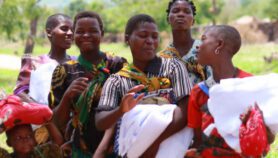Send to a friend
The details you provide on this page will not be used to send unsolicited email, and will not be sold to a 3rd party. See privacy policy.
[CAPE TOWN] Campaigners who forced the Kenyan government to acknowledge a national dearth of essential medicines have outlined some ambitions for the technology that has been at the heart of their success.
Kenya-based Health Action International-Africa (HAI-Africa) waged a successful "Stop the Stock-Outs" campaign that connected text messaging with online mapping technology to create a vivid picture of out of stock medicines across Kenya, as well as Uganda, Zambia and Malawi.
The campaigners now say they would like to work with the Kenyan government to use the technology to beat shortages, and that ultimately they would like any member of the public to be able to discover, by text, which local clinics have the medicines they need.
National Pill Check Week was carried out at the end of June in the four countries.
"Stock-out victims" – members of the public who found that essential medicines they required were out of stock at a particular clinic – texted their news to a mobile phone connected to a computer, a system known as FrontlineSMS. Further software implanted this information into a database known as Ushahidi, which then placed a red dot on an online map. The red dot grew as the number of stock-out reports for the area increased.
When an internet user clicked on one of the dots, a popup bubble displayed reported stock-outs in the region.
Campaigners also did more systematic surveys of local hospitals. By the end of the week, a major shortage of essential medicines was revealed in more than 100 government hospitals and clinics in Kenya alone.
Usahidi is a common mapping software that has been used for many social purposes. FrontlineSMS is software that turns a laptop and mobile phone into a central communications hub without the need for the Internet, and is already being used in around 50 countries for activities directed at social change.
Combining the two was novel and, crucial to its success, was the use of the intermediary "script" which allowed the automatic transfer of information from mobile phone to map, provided texters had used a simple code for their information. If they had instead texted a casual phrase, their information was input manually.
"You could use the Frontline/Ushahidi combo system to map anything," says Michael Ballard, a technology consultant for HAI-Africa. "The coding system that we used would work well for campaigns in which large amounts of data are expected and staff are not available to constantly monitor the system and approve reports."
The Kenyan government has now earmarked more funds for health care in the 2009/10 budget, a move that Patrick Mubangizi, regional coordinator for HAI-Africa, attributes to the strength of the campaign. Kenya’s medical services minister, Anyang Nyongo, has confirmed to lawmakers that extra funds will be used to purchase medicine.
"We were quite thrilled that the Kenyan government finally acknowledged the problem. The next step will be decided after we understand how willing the government is to cooperate with us," says Ballard. "The ideal scenario would be to work with the Ministry of Health. We would like access to medicine stock data so that the system could be interactive."
Ndesanjo Macha, new media consultant for the Public Health Program of the Open Society Institute, which is funding the project, says: "I see the possibility of having a system whereby a consumer sends a text to a number and gets a response about which medicines are available and which are out-of-stock — saving time and money".













